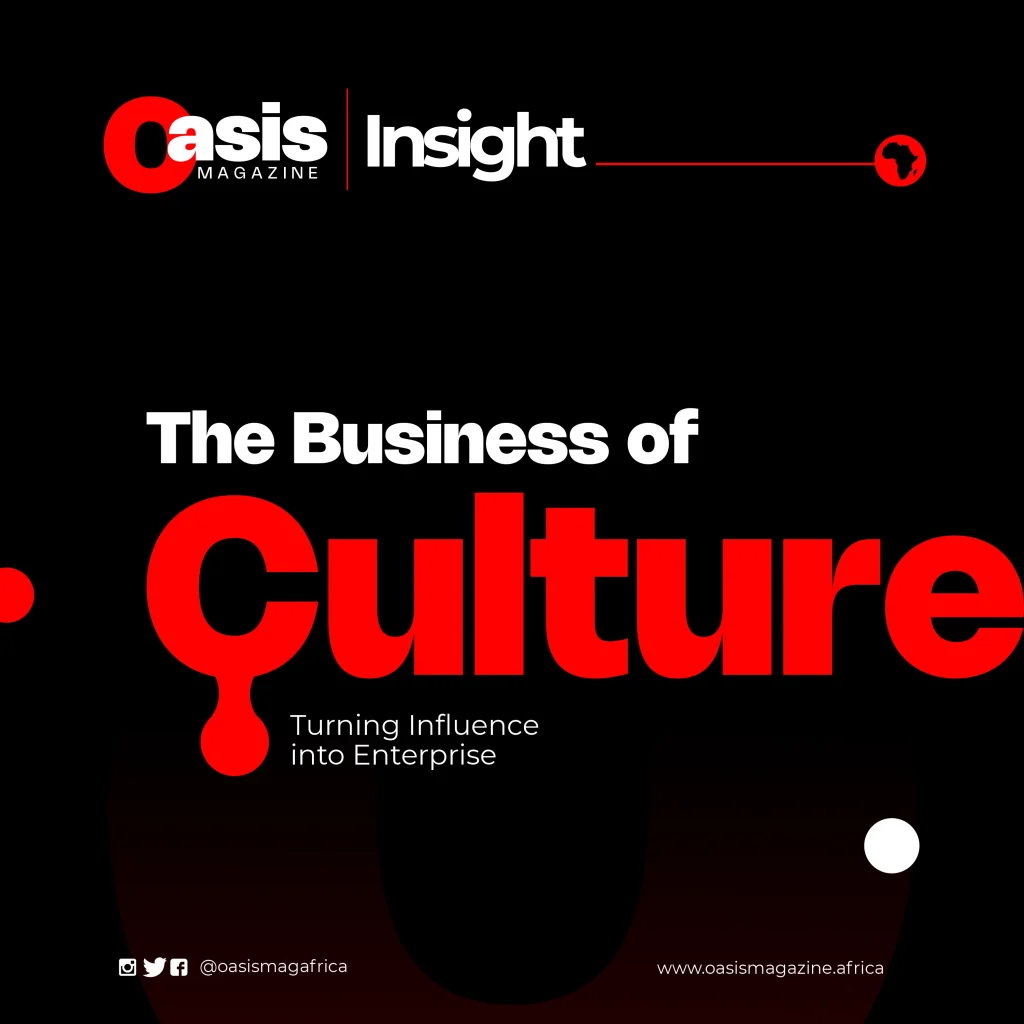How invisible alliances are reshaping global power in the 21st century
Executive Summary: The Invisible Hands of the New World Order
The age of gun-toting resource cartels is fading. In its place, a more sophisticated—and insidious—form of concentrated power has emerged: the new cartels. These are not criminal syndicates, but strategic alliances of tech giants, cultural gatekeepers, and financial networks that control the three most valuable assets of our era: data, narrative, and capital flows.
Operating in plain sight yet rarely named as such, these cartels shape what we see, believe, consume, and invest in—often without democratic oversight or public accountability. From Silicon Valley algorithmic pacts to Pan-African creative collectives and Gulf sovereign wealth alliances, these networks are rewriting the rules of influence, value, and sovereignty.
This feature exposes the architecture of the new cartels—and reveals how African innovators are both challenging and co-opting these systems to build alternative centers of power.
“The most dangerous cartels today don’t hide in jungles. They sit on boards, code in servers, and curate your feed.”
The Old Cartels: A Legacy of Extraction
Historically, cartels thrived on scarcity and secrecy:
- OPEC controlled oil supply to manipulate global prices.
- De Beers monopolized diamond distribution to manufacture desire.
- Drug cartels weaponized logistics and corruption to dominate illicit markets.
Their power was physical, extractive, and zero-sum. But in a digital, attention-driven economy, control has shifted from resources to flows—and the new cartels are masters of orchestration, not just ownership.
The Data Cartel: The Algorithmic Oligopoly
Who: Google, Meta, Amazon, Apple, Microsoft (GMAAM) + select Chinese tech giants (Tencent, Alibaba)
What They Control: 89% of global digital ad revenue, 76% of cloud infrastructure, and near-total dominance of AI training data.
How It Works:
- Data hoarding: User behavior, biometrics, and transaction histories are captured at scale, then used to train proprietary AI models.
- Gatekeeping: App stores, ad networks, and cloud platforms dictate who can reach audiences—and at what cost.
- Regulatory arbitrage: Lobbying and jurisdictional shopping neutralize antitrust efforts.
The African Counter-Move:
- Leta AI (Nigeria) and InstaDeep (Tunisia) are building sovereign AI models trained on African languages and contexts—bypassing Western data monopolies.
- The African Union’s Data Policy Framework now mandates that citizen data remain on-continent, creating a fragmented but protected data commons.
“If data is the new oil, Africa refuses to be the well—it wants to own the refinery.”
The Culture Cartel: The Narrative Monopoly
Who: Hollywood studios, global fashion conglomerates (LVMH, Kering), streaming giants (Netflix, Spotify), and elite media institutions (NYT, BBC, Vogue).
What They Control: Global definitions of beauty, success, taste, and even history.
How It Works:
- Cultural gatekeeping: Who gets greenlit, featured, or awarded is decided by a narrow set of tastemakers.
- Aesthetic homogenization: Local styles are “discovered,” diluted, and rebranded as global trends—often without credit or compensation.
- Soft power projection: National narratives are shaped through film, fashion, and music—often reinforcing Western centrality.
The African Counter-Move:
- Nollywood 2.0: Studios like Sankofa Studios (Senegal) and Ginger Wilson Productions (Nigeria) retain full IP, distribute via owned platforms, and license globally on their terms.
- Afrobeats sovereignty: Artists like Burna Boy and Tems bypass traditional labels, using social media and diaspora networks to build global fandoms—then launch their own labels and creative agencies.
- Fashion collectives: The African Fashion Council now certifies “authentic African design,” pushing back against cultural appropriation.
“We’re not asking for a seat at their table. We’re building our own runway.”
The Capital Cartel: The Liquidity Cartel
Who: BlackRock, Vanguard, Fidelity, and Gulf sovereign wealth funds (Saudi PIF, UAE’s Mubadala), plus elite private equity networks.
What They Control: Over $30 trillion in assets under management—enough to sway national economies.
How It Works:
- Passive dominance: Index funds own significant stakes in nearly every major public company, creating silent but unified voting blocs.
- Emerging market gatekeeping: Access to capital for African startups often requires adopting Western governance models, exit timelines, and valuation metrics—even when misaligned with local realities.
- Climate finance control: Green bonds and ESG funds dictate which energy transitions get funded—often sidelining decentralized, community-led models.
The African Counter-Move:
- AfCFTA’s Pan-African Payment System (PAPSS) enables intra-African trade in local currencies—reducing reliance on dollar-denominated finance.
- Diaspora bonds (e.g., Nigeria’s $500M diaspora bond) and community investment clubs (like Kenya’s chamas) are creating alternative liquidity pools.
- VCs like Future Africa and Sahel Capital are building patient capital models that prioritize ecosystem growth over quick exits.
“Capital should serve communities—not the other way around.”
The Hybrid Cartel: When All Three Converge
The most powerful new cartels are triangulated:
- Elon Musk’s X + Tesla + SpaceX: Controls data (social platform), narrative (personal brand), and capital (market cap + government contracts).
- LVMH + Instagram + L Catterton (PE arm): Owns luxury brands, dictates cultural desirability via influencer algorithms, and deploys private equity to acquire rising labels before they scale independently.
These entities don’t just operate in markets—they design them.
Africa’s Asymmetric Strategy: Building Counter-Cartels
Rather than confront the giants head-on, African innovators are building sovereign alternatives:
| Domain | New Cartel | African Counter-Cartel |
|---|---|---|
| Data | GMAAM | African AI Alliance + AU Data Policy |
| Culture | Hollywood + Vogue | Afrobeats IP Collective + Nollywood 2.0 |
| Capital | BlackRock + PIF | PAPSS + Diaspora Bonds + Local VCs |
These are not anti-global—they are pro-sovereignty. They seek interoperability, not isolation.
The Ethical Dilemma: Are All Cartels Bad?
Not all concentration is malign. Some cartels stabilize markets (OPEC during oil shocks) or elevate standards (Fair Trade). The question is:
- Who sets the rules?
- Who benefits?
- Who can exit?
The new cartels fail on all three counts. But the African counter-movements offer a blueprint for ethical concentration: open protocols, shared ownership, and community governance.
Insight: The Battle for the 21st Century
The defining struggle of our era is not between nations or ideologies—but between centralized control and distributed sovereignty.
The new cartels—data, culture, capital—are the invisible architects of a homogenized, extractive global order. But from Lagos to Kigali, a quiet rebellion is underway: a coalition of creators, coders, and capitalists building systems where value flows back to its source.
This is not anti-capitalism. It’s pro-context.
Not anti-tech. It’s pro-sovereignty.
Not anti-culture. It’s pro-ownership.
The future will be shaped not by who has the most data, the loudest narrative, or the deepest pockets—but by who builds the fairest systems.
And in that contest, Africa is no longer the periphery.
It’s the proving ground.
“The old cartels extracted. The new ones orchestrate. The next ones must empower.”
Sidebar: The Cartel Power Matrix – 2025
Oasis Intelligence assessment of control concentration
| Cartel Type | Top 3 Entities | % Global Control | African Resistance Index |
|---|---|---|---|
| Data | Google, Meta, AWS | 78% | 62/100 (rising) |
| Culture | Netflix, LVMH, Spotify | 65% | 58/100 (accelerating) |
| Capital | BlackRock, Vanguard, Saudi PIF | 41% of EM flows | 51/100 (nascent but strategic) |
Resistance Index based on policy frameworks, alternative infrastructure, and market share of local players.


